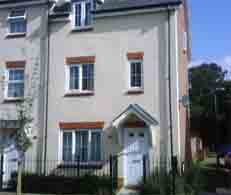
Call Now for Immediate Confidential Help and Advice
The UK's #1 Addiction Helpline
Alcohol Detox in Lancashire
Alcoholism is a dangerous disease that takes over both mind and body until the person cannot function without it. Alcohol Detox represents the first step a person has to take if they’re going to deal with dependency. To begin the Alcohol Detox, it is necessary to use a combination of outpatient and inpatient treatment in Lancashire. The recommended option is residential Alcohol Detox in Lancashire, along with psychotherapeutic treatments and 12-step support programmes.
Inpatient settings and outpatient settings target Alcohol Detoxification in different ways, so patients who need help with their alcoholism should be aware of this. These services are both valid. However, not every option is going to work for every person because everyone has different needs. Alcoholics have to be evaluated in order to determine what kind of detox is suitable.

Call Now for immediate Confidential Help and Advice
How Does Outpatient Alcohol Detox in Lancashire Work?
 Outpatient detox is based on the premise of visiting an outpatient clinic on a daily basis. Each individual will work together with their GP to determine which clinic in Lancashire is best for them. A registered nurse will provide each patient with a full health check during the initial session. Occasionally, nurses may write a prescription for Naltrexone to enable addicts to control their cravings.
Outpatient detox is based on the premise of visiting an outpatient clinic on a daily basis. Each individual will work together with their GP to determine which clinic in Lancashire is best for them. A registered nurse will provide each patient with a full health check during the initial session. Occasionally, nurses may write a prescription for Naltrexone to enable addicts to control their cravings.The first session ends with an instruction to abstain from alcohol. The patient returns to the clinic the following day. The person’s health is examined for a second time, and they may be prescribed medication, if it is deemed beneficial.
The Alcohol Detoxification process repeats itself over 5 to 7 days. The outpatient Alcohol Detox process doesn’t have any time restrictions, however. It’s not uncommon for the detox to last much longer than seven days.
Eata Recovery Services is for people seeking an Alcohol Detox Ran by staff who have already changed their lives. Our team have at one time been sat looking for help and since changed their lives so they understand how it feels – and with that comes great empathy and understanding of what you need, Call us today – take action and change your life
About Inpatient Alcohol Detox in Lancashire
The philosophy surrounding inpatient detox is that the patient will stay at the facility for the entirety of their treatment. The NHS offers inpatient Alcohol Detoxification services, but it will happen inside a local hospital environment. Private treatment clinics administer detox in the same residential facilities that house psychotherapeutic treatments.
Private rehab facilities offering inpatient detox services will have separate wings for detox patients, staffed by trained experts. Health monitoring and specific prescription medications are still used inside these facilities. Staff make sure that addicts are comfortable to give them the best chance of completely detoxing within 7 days.
Do You Need Medical Monitoring with Alcohol Detox?
 Medical monitoring is available within all rehab clinics in Lancashire, and for good reason. That reason is as follows: it is generally accepted within the medical community that Alcohol Detox represents a medical emergency. Without that protection in place, an Alcohol Detox could quickly lead to the injury or death of an addict in the centre’s care.
Medical monitoring is available within all rehab clinics in Lancashire, and for good reason. That reason is as follows: it is generally accepted within the medical community that Alcohol Detox represents a medical emergency. Without that protection in place, an Alcohol Detox could quickly lead to the injury or death of an addict in the centre’s care.
Let’s take a look at a possible complication. One is referred to as delirium tremens. Alcoholics are unlikely to experience this condition, but it is certainly possible. Without the intervention of professional Alcohol Detox in Lancashire, the patient could die from this condition. Their lives could be saved via medical monitoring because they can be prescribed with the drug topiramate.
Nobody should ever attempt an Alcohol Detox if they do not have the aid of a full medical team. This is a dangerous thing to do, and more importantly it will lead to strong cravings. If the patient fails then the chances are it will make it harder to quit because it is only reinforced the dependency cycle.
Is Alcohol Detox in Lancashire Free?
The cost of Alcohol Detoxification depends entirely on where treatment is sought. If you do not have the money then you can get a free detox in Lancashire through the NHS. If you want to get detox via the private sector then you will have to pay for it.
Those who possess private health cover, however, will likely have their costs covered by the policy. Without a private insurance policy, all is not lost. Most private clinics allow payments through credit card and cash.
Does Detox Cure the Disease of Alcoholism?
It is common for people suffering with alcohol dependence to assume they can be completely cured with a 5-to-7-day detox programme alone. There’s little truth in this belief. The only path to a sober life is to abstain forever. Only then can addicts overcome dependency. You will find it extremely difficult to do this without psychotherapeutic aid.
The physical addiction, or dependency, is what detox is designed for. Remember that dependency is not just physical it is psychological. If a patient wants to enjoy a life of sobriety they have to be able to deal with the psychological deficiencies that lead to dependency to begin with. There is a strong risk of relapse if a patient attempts to become sober exclusively through an Alcohol Detox.
Psychotherapy Treatments Used after Detox
Patients who decide on a residential clinic in Lancashire are making a good decision because they are combining detox with all-important psychotherapeutic treatments. Psychotherapy addresses the mental and emotional issues of dependence. The goal of any psychotherapist is to enable patients to understand the disease of alcoholism and to help them stop relapsing through imparting coping strategies.
Cognitive therapy is a primary tool for therapists in helping patients to meet their goals. Other common tools include: nutritional education, meditation, acceptance and commitment therapy, and 12-step programmes. This works alongside constant positive reinforcement.
Featured Alcohol Detoxes in Lancashire
There are many Alcohol Detox Centres in Lancashire, including inpatient, outpatient, and luxury.

100% No Spam Policy
One of our confidential trained counsellors will contact you to speak about your options.
Important Alcohol Detox Queries Answered
Alcohol addiction is characterised by withdrawal symptoms during an Alcohol Detox. The technical term for this is alcohol withdrawal syndrome. Expect to see withdrawal symptoms in the few hours following a final alcoholic beverage. It takes a few days for withdrawal symptoms to fade.
It’s important to grasp the fact that alcohol misuse doesn’t always translate to alcohol dependency. Alcohol dependency is not necessarily associated with someone who binge drinks regularly. Alcohol Detoxification is only required when someone has a dependency.
It is possible, and even encouraged, to use an Alcohol Detox in Lancashire with the classic 12-step programme to enable alcoholics to achieve permanent abstention.
Naltrexone is the most well-known drug used within an Alcohol Detox. But afterwards doctors switch to using Acamprosate and disulfiram to help patients. Doctors in Lancashire are not afraid to prescribe the medications if they feel it necessary.
How can I convinced a loved one to attend detox?
It’s impossible to make someone undergo an Alcohol Detox, and it should never be attempted. Taking action in the form of an intervention is a great option for convincing an alcoholic that they need help via Alcohol Detoxification and psychotherapeutic rehab.
Undergoing Alcohol Detox in Lancashire is the initial step in combatting alcohol dependency. Make contact with our expert team today if you want help in breaking your addiction to alcohol.
- FREE Advice including NHS & Private Options
- Direct Access To Treatment Counsellors
- Bespoke Treatment Options For All Addictions
- No.1 In The UK & Featured in National Media
- Access to Hundreds of Drug & Alcohol Rehab Centres
Calls and contact requests are answered by admissions at
UK Addiction Treatment Group.
We look forward to helping you take your first step.
0808 163 9632




